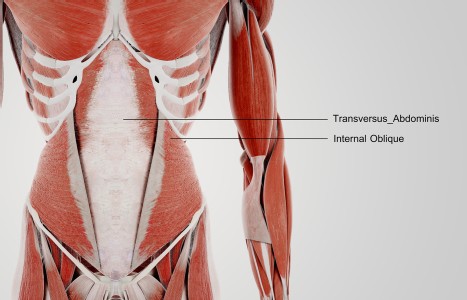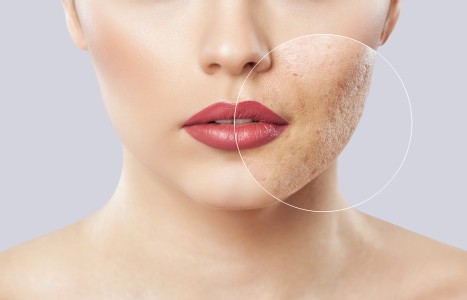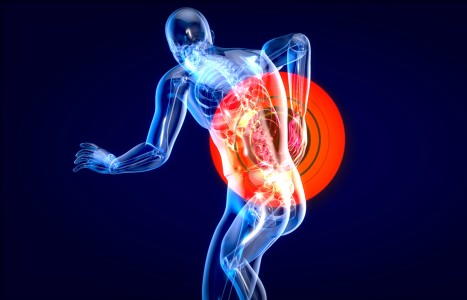TrA-2, my primary needle location, I needle 95% of the time and I think it works the best. You’ll know you have the right point location when you discover the muscle twitching when applying electric stimulation.
AWB Haiti Update
Acupuncturists Without Borders (AWB) recently returned from a trip to Haiti, Feb. 3-7. The trip included myself, Julia Raneri (AWB's Haiti Operations Manager), Kim Marin (an acupuncturist from Florida), a doctor from Florida, reporter Mia McCormick and U.S. businessman Jehan Heraux. The trip was organized by Dr. Ali Tahiri of the Sarasota Bay Rotary Club. Our purpose was to explore the best strategy, timing, logistics and locations for AWB teams to safely go to Haiti to provide trauma recovery services.
Our first day
Immediately upon arrival, we saw the refugee tent camps surrounding the airport. The camps were everywhere. People were bathing in the streets and cooking food, while children ran around. We wondered: Where are people going to the bathroom; what about the sick people; and how are people possibly sleeping? Driving by at night and seeing candles lit around the camps we wondered if the children in these camps were safe?
As we drove around town, 71-year-old Erick, our translator and driver, said, "I am losing all my memories." He told us stories about which buildings were there before. At one point, he said, "That church was where I had my wedding," as we looked at its crumbled facade with stained glass windows on the ground. While I took a photograph, a woman came up to me asking for food and money.
Treating Survivors
At the Universite Quisqueya we did treatments for the medical students. They were so enthusiastic and asked us to come train them so they can use this protocol themselves. They go to the camps several times a week and also provide medical services to the community under their makeshift tents on the destroyed campus.
We treated people at the General Hospital. People immediately took to the acupuncture. Crowds gathered and visitors of families in the hospital all wanted treatment. A woman said that before the treatment her head had been spinning and she couldn't focus, but after the treatment she felt calm. After needles were put into one man's ears, tears slowly started to form around his eyes, possibly the first time he had cried since the earthquake.
American doctors came into the tent were we were set up, very curious. They said this had been known as the "sad tent" but all of a sudden people were smiling and even laughing. We treated 100 people that day, including nurses and staff at the hospital. People asked if we could come back the next day. The hospital staff wants us to come and train them so they can carry on the work we began with their patients.
Stories to tell
Everyone had their stories about where they were at the time of the earthquake and what it felt like. A bomb going off. The end of the world. Erick said his cousin had just walked outside a supermarket to her car and was hit by a falling rock falling and died. Erick's nephew was visiting from the States. He had just walked out of a building minutes prior to the earthquake. When the earthquake hit, the building collapsed, and everyone inside died. He pulled his best friend out of the rubble. Now he walks around in a state of shock much of the time, trying to help out as he can. He was only supposed to be in Haiti for 10 days, but instead stayed here.
We visited Marie, a friend of Jehan Heraux, one of our hosts. Marie told me that a woman who works for her recently brought in a baby. The baby's mother had died in the earthquake, and a relative had taken it in but didn't know how to care for it. The relative gave the baby water with sugar and salt. The baby got sick. When the baby was brought to Marie, she immediately started feeding it infant formula, purchased at $20 a container. Unfortunately, it was too late. A few days later, the baby died.
Coming home
Like many others visiting Haiti, I held back my tears while I was there. Then, at 12 a.m., driving home from the airport, I turned on some music in my car and started sobbing. The reporter who had been with us, Mia McCormick, told me the same thing happened to her.
I am back in New Mexico, looking at the pristine snow outside. It is hard to make sense of it all. One man said that his whole career was gone before his eyes. He owned an architectural engineering firm with many employees. His top employees were working late the night of the earthquake. They all died because the building where his firm was located collapsed. I am thinking of all the people of Haiti, with so many losses.
So far, AWB has raised close to $20,000 to launch its Haiti Disaster Recovery Project. You can donate at www.acuwithoutborders.org/donate_haiti.php. One hundred percent of your donation will go to the Haiti program. We hope to be in Haiti for up to six months to support ongoing recovery, both in providing treatments and in training local medical personnel to carry this work forward. In order to offer this type of sustained assistance, we will need to raise an additional $50,000. Thank you to all donors so far. Your contributions are allowing us to send initial teams into Haiti in a timely manner.
The Haiti Disaster Recovery Project is a collaboration between Acupuncturists Without Borders and Pathways to Wellness. Thank you to the NCCAOM and AAAOM for their support.


